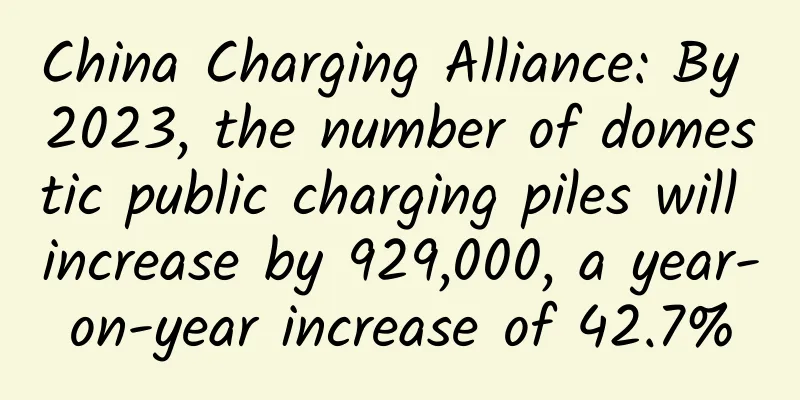Can Didi maintain its original intention in the post-unicorn era?

|
At 10pm on Saturday, Beijing Chaoyang Joy City ended a day of bustle and prosperity. On the road outside the mall, the hustle and bustle continued: groups of private cars parked close to the roadside with their hazard lights on, and groups of people were calling out loudly while looking around at the intersection, hoping to find the special car they had ordered through their mobile phones among the dense traffic lights. In a sense, taxi apps have become an indispensable part of people's travel, and Didi Chuxing, after completing its acquisition of Uber China, has become an absolute unicorn in this field. Didi's speed of transformation and development far exceeds that of many companies. CEO Cheng Wei once said, "It can be said that Didi is a new company every three months." From August 1 to now, within a month of acquiring Uber China, Didi has made a series of adjustments from integration to price adjustment to the development of new businesses, trying to accelerate the transformation from a competitor to a defender. Did Youdi show up? On the night of the merger between Didi and Uber China, Uber China held a meeting of all employees and announced that it would issue a cash bonus (Close Bonus) to employees within 30 days after the merger, at which time employees could choose to stay or leave. A week after the merger was announced, Cheng Wei sent an internal email titled "One Team, One Dream" to Uber China employees, hoping that Uber China would operate independently. On the eve of the Chinese Valentine's Day, this email could be seen as a "love letter of goodwill", but it was difficult to see more substantive merger measures from the outside afterwards. As early as the acquisition was announced, Bloomberg quoted an insider as saying that after Uber sold its Chinese business to Didi, it would redeploy 150 engineers in China to Singapore, Thailand, Indonesia and other regions to continue map development and other businesses. Recently, an internal employee revealed that Didi has established the Didi Uber Division, with two people from Didi and Uber China each sending two people to jointly manage Uber China's application software operations in the future. The 30-day transition after the merger is about to end, and Uber China employees will face the choice of staying or leaving. According to a management who previously revealed to Interface, he began to consider looking for a new job as soon as the merger was announced. For some positions with a high degree of overlap with Didi's related businesses, Uber China employees are also more inclined to seek other ways out. The integration of corporate culture and concepts has always been a challenging part of corporate mergers and acquisitions. Previously, Didi's acquisition of Kuaidi went smoothly, but Uber is, after all, a multinational company with very different management concepts and corporate cultures. The merger was intended to quickly stop the market strategy of "burning money wars". Whether it can play the true value of 1+1>2 in the future remains to be tested. Quick stop loss driver leaves the scene Compared with internal integration, the outside world immediately noticed the changes after the merger, which was that Didi reduced subsidies for passengers, increased prices, and adjusted the pricing method for drivers. Starting from August 18, Didi platform began to implement separate pricing for drivers and passengers, canceling the previous 20% commission on each order charged to drivers, charging 0.5 yuan per order plus a 1.77% management fee. Didi said that the income of car owners in some cities will increase with the separation of driver and passenger pricing, which can be increased by about 10%-18%. But car owners don't seem to care. When talking about Didi's adjustment of pricing, car owner Mr. Li said expressionlessly: "Will Didi make us money? It's all the same, it's as heavy to carry as to hold." On August 3, several Didi Express drivers in Beijing confirmed to reporters that Didi cancelled the driver-side order bonus for that day, and in the following days, the order bonus returned to 60 yuan for 22 orders. Now, the order bonus has been further reduced to 40 yuan for 22 orders. "The bonus will probably be gradually cancelled in the future. There are so many drivers on the platform, if you don't do it, there will definitely be someone willing to do it." Mr. Li said helplessly. As subsidies decline and orders decrease, some car owners who rent cars for Didi, directly operated car owners and part-time car owners are planning to escape. Didi driver Master Wang used to work as a truck driver for YTO Express, but he found it too tiring and switched to being a Didi driver. However, after only three months, the high cost of renting a car made him back out: the daily rental fee was more than 200 yuan, or 6,000 yuan a month. "The platform also takes a cut, so I can earn 5,000 to 6,000 yuan a month, but I have to work more than ten hours a day." In September, Master Wang had a new plan. "I have contacted my previous company and I will go back to YTO to drive my truck." Driving a red Mazda, with tattoos on his left arm and earrings, the cool car owner Mr. Liu complained to the Jiemian News reporter: "Didi has screwed me!" He worked as an employee in a company last year, earning 6,000 yuan a month. When he heard that driving Didi could make money, he resolutely quit his stable job and became a Kuaiche car owner. In the second half of last year, his income was indeed good, with an income of more than 10,000 yuan a month. "Now, after deducting the cost of gas, insurance and miscellaneous expenses, I only make 5,000 yuan a month." Mr. Liu also started looking for a job, ready to withdraw at any time. Didi drivers in Shenzhen and Beijing also have this idea. On Friday afternoon, several fellow villagers from Guangxi came to Didi Drivers' Home to go through the procedures for withdrawing from the platform. One driver said that he used to drive Didi in his spare time, and then he bought a Sylphy to drive full-time. In order to pay off the car loan, he had to drive more than 12 hours a day. He used to think that Didi was good because it was not as restrictive as taxis. Now, the number of orders has dropped rapidly. Working 12-14 hours a day, he can only earn more than 6,000 yuan a month, which is very stressful. Many part-time drivers are waiting and watching. "I work during the day and drive Didi at night to earn some pocket money," said Mr. Wang, a driver. "I heard that the new policy will be released in November, but I don't know what it will be like. If it's too strict and requires certification or something, I won't do it." In the previous "money-burning war" to gain market share in China, a group of "full-time" drivers were quickly spawned due to generous subsidies. However, as incomes fall, some will inevitably quit. Being a part-time driver with the mentality of "earning pocket money outside of work" seems to have made the Didi platform return to rationality and the original intention of the sharing economy. However, with fewer discounts, Didi is also facing a game with passengers. Many passengers have expressed their feelings on social platforms that Didi taxi prices have increased. According to the Huashang Daily, since Uber and Didi announced their merger, prices in the national market have increased by about 30%. It cited industry analysis that consumers feel the price increase mainly because "while online car-hailing prices are increasing, various subsidies and discounts are also decreasing, and the price increase is the result of the combined effect of the two." Didi Express is cheaper than taxis, which will still attract people as a travel option. However, this is also a price-sensitive consumer group, and will inevitably reduce the number of times it uses the service due to price increases. Since August, Didi drivers in Beijing have reported that they receive four or five fewer orders per day than before. According to Analysys International, as passenger discounts gradually decreased, Didi's user penetration rate began to decline slightly in June compared to May. In July, Didi's user penetration rate fell sharply, by nearly 10%. In addition, Didi's number of active users in July also dropped by more than 700,000, and its user stickiness also continued to decline. Raising prices means that Didi needs to quickly stop losses from its previous "money-burning war". After Didi acquired Uber, Didi investor Zhu Xiaohu said in an interview, "They can't keep fighting like this. They should stop before reaching $30 billion." And now, this merged unicorn is under more profit pressure from investors. According to Didi's previous announcement, the original Chinese shareholders of Uber China will become investors in Didi Chuxing and acquire a total of 2.3% of Didi's shares. The original Chinese shareholders of Uber China include CITIC Securities, China Life , China Taiping, HNA Group, GAC Group and Vanke. Didi has thus become the only company jointly invested by Tencent , Alibaba and Baidu . As for the separate pricing for drivers and passengers on the Didi platform, some industry experts believe that this move is one of Didi's strategies to obtain government approval for the acquisition of Uber under the existing Anti-Monopoly Law. According to the original charging model, Didi's operating income is 20% of the platform service fee. As a related market, the online car-hailing platform service accounts for more than 80% of the overall market share after the acquisition of Uber China; while the separate pricing for drivers and passengers is adopted, the travel service fee paid by passengers to Didi is regarded as operating income, and the driver income is recorded in Didi's operating costs. Then the share of Didi and Uber China in the travel market is still far from the standard of "concentration of operators" in the Anti-Monopoly Law. However, there are also views that this separate pricing has also changed Didi's "sharing economy" business model. The previous model of charging a 20% service fee means that Didi, as a travel platform, does not directly provide travel services, but provides related services to both parties of the transaction and charges corresponding service fees. After the pricing is separated, Didi earns profits through the price difference between passengers and drivers, which means that Didi has changed from its original role as a sharing economy platform to a subcontractor of travel services. Unicorns still have rivals Although it has become a unicorn in the post-Uber era, Didi dare not relax for a moment. It still faces many tangible and intangible challenges in China's turbulent private car market. The most direct competition comes from other platforms. Didi and Uber have stopped the "money-burning war", and other players in the private car market continue to subsidize. Yidao continues to offer a 150% rebate, and on this basis gives away LeTV memberships and hardware products; Shenzhou continues to offer a 20 yuan rebate for every 100 yuan recharged; Shouqi Car-hailing continues to offer a 50 yuan rebate for every 100 yuan recharged. Eleven economists surveyed by Reuters believe that there are few barriers to entry into the ride-hailing app market, making it an industry full of eternal competition. Relying mainly on contract drivers and free ride-hailing apps that can be downloaded in seconds, platform drivers and users are usually not very loyal. "You may not try a new social networking site if your friends are not on it, but you don't care which ride-hailing app your friends use," said David Evans, chairman of the Global Economics Group. The uncertainty of the implementation of the new policy on private cars in local areas has also become an uncertain market factor for Didi. On July 28, the new policy on private cars was finally released. According to the regulations, the new policy will be implemented in November. The legal status of online ride-hailing cars will be clarified, and private cars that meet the conditions can be converted into online ride-hailing cars according to procedures. However, local governments are given full autonomy in terms of vehicle standards, business scope and guiding prices. On August 28, the Qilu Evening News quoted an insider as saying that after a month of research, the draft of the Jinan version of online ride-hailing has been formulated, and the number and fares of online ride-hailing will be controlled. Previously, the Jinan Transportation Management Center and the Jinan Taxi Association issued "11 Questions and Answers on Hot Issues in Deepening Taxi Reform" to taxi companies, which stated: "Online ride-hailing vehicles should be significantly higher in grade than local mainstream cruising taxis, providing citizens with high-quality differentiated travel services." The relevant person in charge of Lanzhou Urban Transportation Department also stated that the development scale of online ride-hailing will be strictly controlled. The number of online ride-hailing vehicles to be put into use will be reasonably determined according to market demand, and reasonable control will be implemented on online ride-hailing vehicles at the access end. It is understood that the saturation state of operating vehicles in Lanzhou should be around 15,000 vehicles, while the current number of taxis in Lanzhou is 10,000. With the government's investment in taxis in the next two years, it should reach 12,000. According to this calculation, the number of online ride-hailing vehicles left is only about 3,000. In addition to continuing to stabilize its taxi-hailing platform, Didi is also leveraging its platform traffic advantage to promote the development of new businesses, trying to establish a complete automotive ecosystem. On August 22, Didi Chuxing confirmed that its car rental business had begun testing operations in Shanghai in July this year, and will be promoted to many first- and second-tier cities across the country within the year. Unlike traditional car rentals, Didi adopts a fully online car rental service, where car rental reservations, payments, and order modifications can all be completed online, and staff will deliver the car to your door for free. This move is considered to be cutting into the backyard of UCAR - UCAR. In this regard, UCAR Chairman Lu Zhengyao told the media: "We are ready to start a price war. But we are not afraid of this war. First, we have a cost advantage, and our customer experience is irreplaceable." Lu Zhengyao also believes that the business model of a pure car rental platform is not tenable. From using Didi to hail a taxi, to using Didi Express, private cars, ride-sharing, and car rentals... this Internet company, which has only been established for four years, has "educated" its users with huge subsidies. As a unicorn in China's travel market, Didi has, to some extent, become a "necessity" for travel in the entire society. In just one month, with the new online car-hailing policy, the merger of giants, and the sudden end of the subsidy war, Didi suddenly entered the post-unicorn era. Cheng Wei once said that Didi has only built the prototype of the travel ecosystem, and everything has just begun. How to fill the "beautiful imagination space" without forgetting the original intention, people are watching Didi's next step. As a winner of Toutiao's Qingyun Plan and Baijiahao's Bai+ Plan, the 2019 Baidu Digital Author of the Year, the Baijiahao's Most Popular Author in the Technology Field, the 2019 Sogou Technology and Culture Author, and the 2021 Baijiahao Quarterly Influential Creator, he has won many awards, including the 2013 Sohu Best Industry Media Person, the 2015 China New Media Entrepreneurship Competition Beijing Third Place, the 2015 Guangmang Experience Award, the 2015 China New Media Entrepreneurship Competition Finals Third Place, and the 2018 Baidu Dynamic Annual Powerful Celebrity. |
>>: What is the reason behind Meitu’s huge losses?
Recommend
How to write an excellent marketing plan?
Many people who work in operations have experienc...
What is a community? How should it be operated?
1. Everyone is chatting in the community Everyone...
New media operation topic selection method!
When it comes to new media, some people say that ...
To reduce the uninstall rate of APP after push, these 4 tricks are very effective!
Push is a message push, which serves to remind or...
A must-read for APP marketers: 5 senses and abilities you must master!
I have read many marketing books and found that t...
9 Strategies for Optimizing E-Commerce Product Details Pages
Consider the following scenario: Let’s say you ar...
“A Bite of China 4” reveals: When food meets physics, it’s amazing!
"A Bite of China" presents Chinese food...
Meituan Operations: The Marketing Logic of Meituan Takeaway Monthly Card
Buy monthly pass at super low price First, let’s ...
Guidelines for Advertising in the Tourism Industry
During the peak travel season at the end of the y...
The price of immunoglobulin G has been hyped up to tens of thousands of yuan. Do we really need to stock up some during the peak of the epidemic?
The continued development of the COVID-19 pandemi...
Can pregnant women eat dog meat?
To buy dog meat, please add ❤jimifeng01 Can I e...
In the mini-app war between BAT and others, who is more likely to be the winner?
[[246273]] summary: Why do BAT attach so much imp...
China Mobile Internet Development Report, Q3 2016
Report highlights • As of Q3 2016, the total numb...
Why do companies rely on Baidu bidding hosting today?
Why businesses rely on Baidu hosting today With t...
Pan Ya Pan Pan Photography Tutorial 2020 [Good quality only video]
Pan Ya Pan Pan Photography Tutorial 2020 [Good qu...









